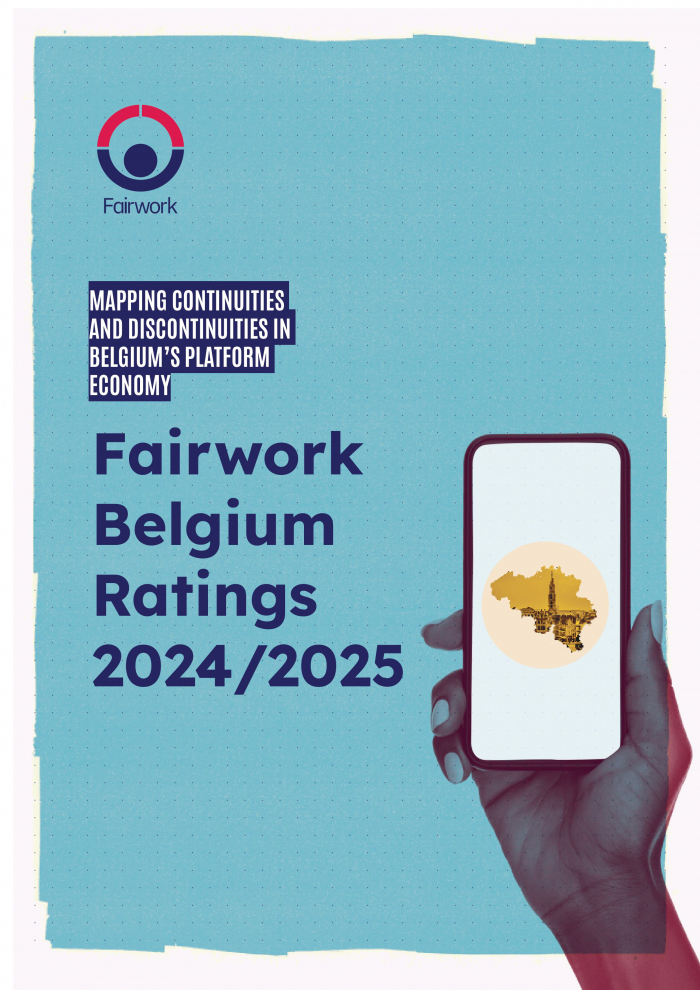

The growth of the platform economy in Belgium, although less rapid than in its neighbouring countries, has triggered heated debates around workers’ legal classification and their protection. The structures for collective employment regulations and strong trade unions under the Ghent system provide some protections for workers, but in the specific context of the platform economy, they do not always translate into fairer working conditions. The lack of guaranteed minimum wage and social security coverage for self-employed workers in the platform economy results in underpaid and unpaid labour. Falling outside the scope of collective sectoral agreements, platform work is also linked to lack of job protection and lack of collective voice.
The first round of Fairwork Belgium ratings for 2022 sheds light on the working conditions of platform workers and makes practical suggestions for improving them. This report establishes a baseline for the country’s platform economy that will be updated on a yearly basis. Five platforms in the food delivery, care, and domestic services sectors were evaluated against five Principles of Fairwork, and given a score out of ten.
Webinar: Fairwork Belgium Ratings 2021 Report Launch
Catch up with the Belgium Teams report launch below. Following a brief presentation of key findings, our panelists discuss the the Belgium 2022 Report.
Panelists: